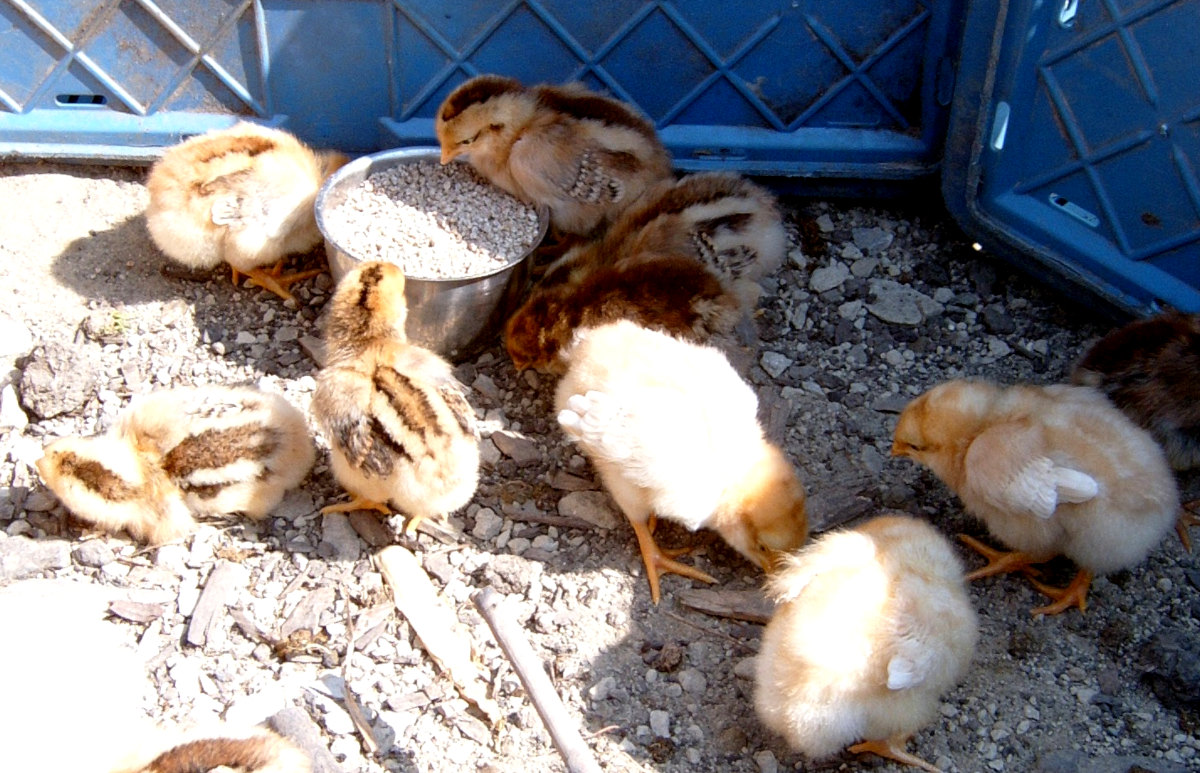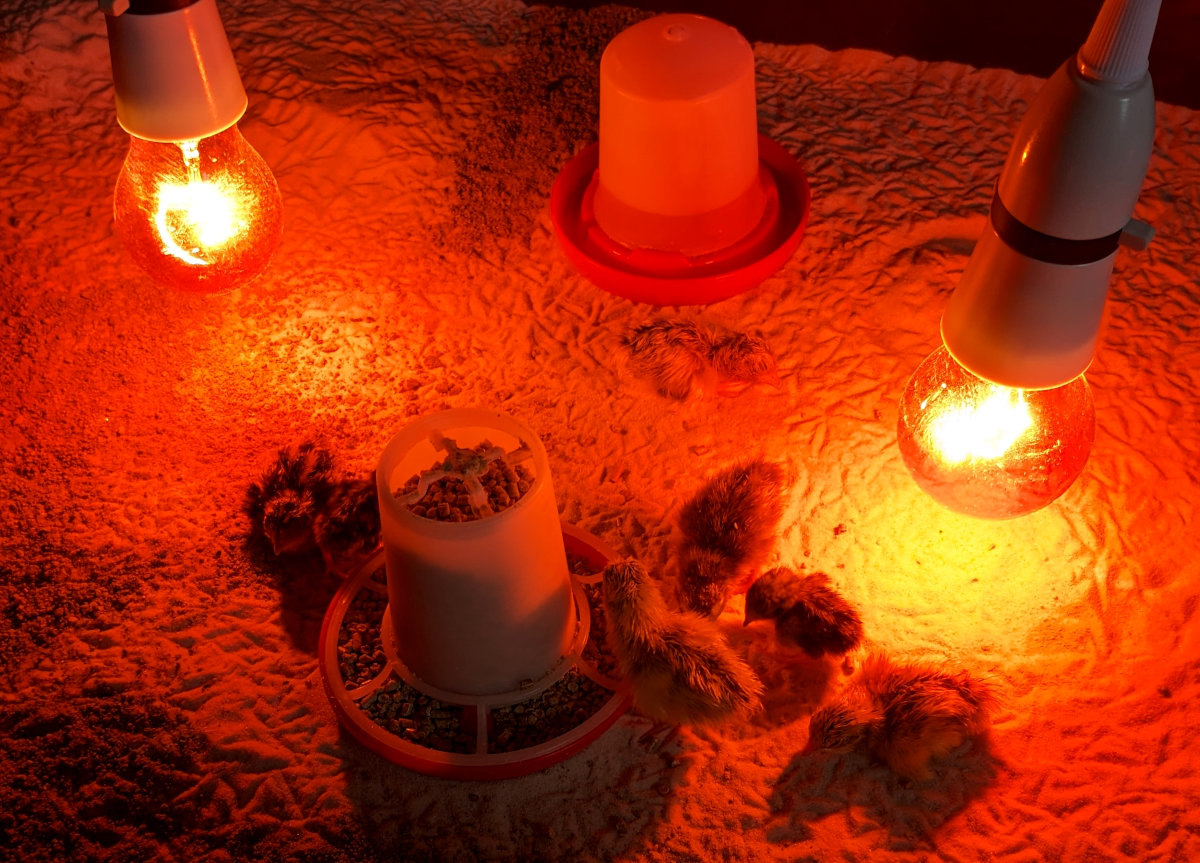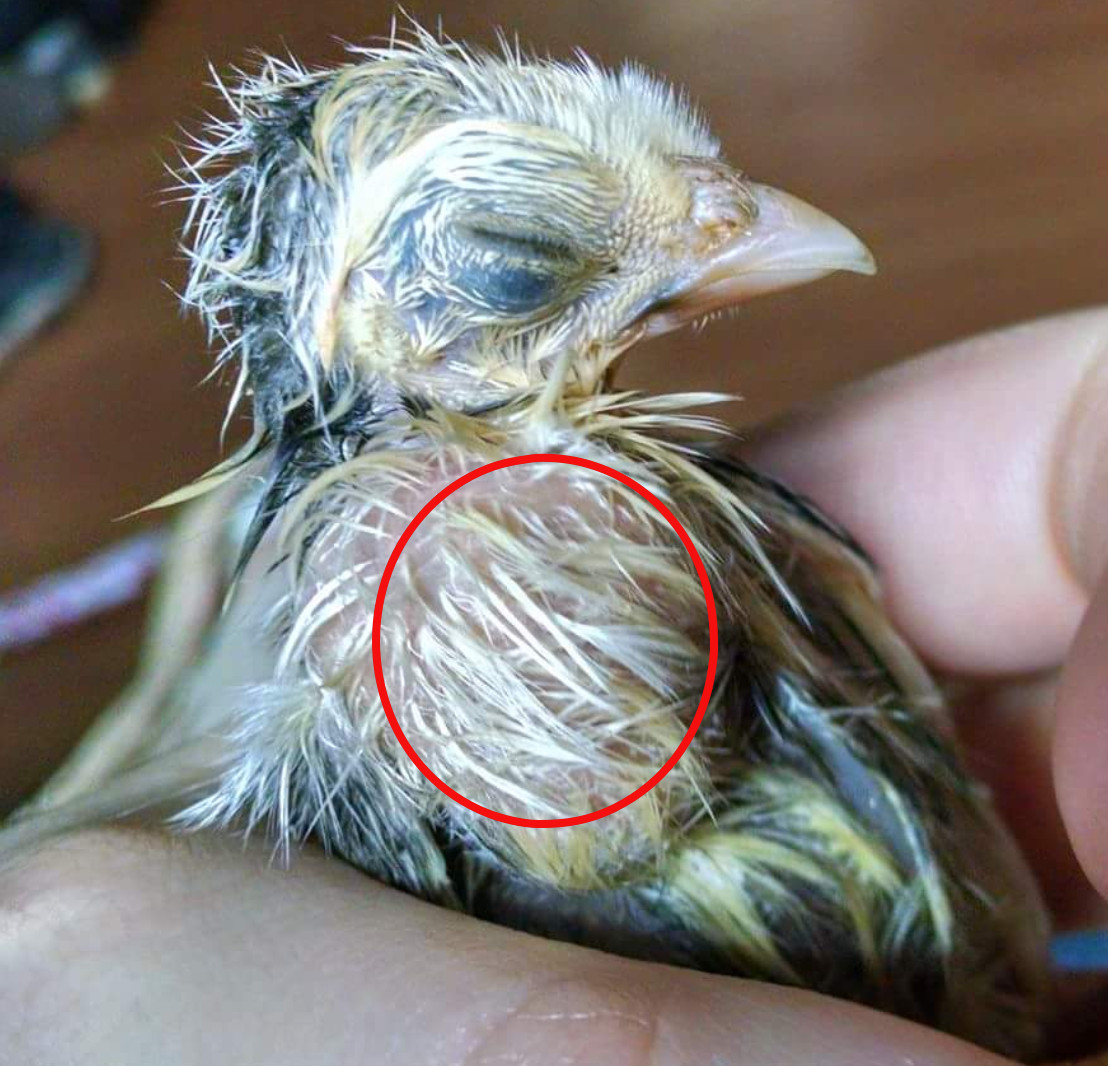Chicks not eating? Helping baby chicks to eat and the reasons some new hatchlings struggle.

Baby chicks are fragile creatures that need a lot of care and attention. One of the most important things to keep an eye on is their eating and drinking habits. If your baby chicks are not eating or drinking, it can be a sign of a serious problem.
Table of Contents
Proper nutrition is crucial for the growth and development of baby chicks. Their diet directly impacts their overall health and resistance to diseases. When a baby chick refuses to eat, it becomes a matter of immediate concern, requiring prompt attention and appropriate action.
Why is my baby chick not eating?
There are many reasons why baby chicks might not eat or drink. I hatch a lot and every now and then I get chicks that just starve themselves out.
Below: My brooder setup with crumb and water, two heat sources and sand for the bedding.

It should also be noted that newly hatched chicks have a source of energy, nutrients and water contained in the yolk that remains inside them when they emerge. This can last them as long as 72 hours and during this time they might not eat as much as you expect them to.
Some of the most common causes of chicks not eating or drinking include:
- Cold temperatures: Baby chicks need to be kept warm in order to stay healthy. If the temperature in their brooder is too low, they may not have the energy to eat or drink.
- Genetic malformation: The chicks may not have developed properly in the egg. Unfortunately these chicks can not be helped and will likely die.
- Shipping: Hatchery chicks are often shipped by post and can suffer severe distress.
- Pasting: Pasting is a condition that occurs when a chick's droppings dry and stick to their vent. This can make it difficult or impossible for the chick to defecate, which can lead to dehydration and other health problems.
- Sickness: If a baby chick is sick, they may not have the appetite to eat or drink. Some common illnesses that can affect baby chicks include coccidiosis, Marek's disease, and respiratory infections.
- Stress: Baby chicks can be stressed by a variety of factors, such as sudden changes in their environment, loud noises, or being handled too much. Stress can lead to a loss of appetite and other health problems.
- They are eating the bedding: Chicks can sometimes eat the sawdust, shavings or sand on the bed of the brooder and this can block the digestive system. Cover the floor with a sheet of paper till they learn where the food and water is.
If you notice that your baby chicks are not eating or drinking, it is important to take action immediately. The sooner you address the problem, the better the chance of your chicks making a full recovery.
When to take action and what to do:
A chicks can survive without food for up to 72 hours after hatching on its reserves, but only for around 24 hours without water.
After 24 hours in the brooder all chicks should have tried to eat and drink and any that have not done so by this time may need some special care.
You should separate out any chicks that are not eating or drinking and look like they are falling behind their brood mates.
If the chick is dehydrated, you can give it a few drops of sugar water or weak electrolyte solution. A dehydrated chick will be quiet, immobile, listless and sleep a lot.
Teach the chicks. Sometimes you need to mimic the mother hen and teach the youngsters to eat.
Below: Me, pretending to be a mother bird and teaching my chicks what is food by sprinkling the crumb in front of them.
Make sure the chick is warm enough. Baby chicks can't regulate their own body temperature, so they need to stay warm. The ideal temperature for baby chicks is 95-99 degrees Fahrenheit for the first week of life, then 90-95 degrees Fahrenheit for the second week, and 85-90 degrees Fahrenheit for the third week and beyond. If the chick is cold, it will not have the energy to eat.
Check the chick’s crop to make sure food it contains food.
Below: The location and size of a crop on a chick.

Weaker chicks are easily trampled and may suffocate under a pile of their siblings or be pushed away from food and should be separated.
If the chick is pasty butt, gently clean the area around its vent with a damp cloth. You can also apply a small amount of petroleum jelly to the vent to help prevent the poop from sticking.
Make sure the chick has access to food and water. Baby chicks should have access to a chick starter feed and clean, fresh water at all times. The food should be placed in a shallow dish or tray so that the chicks can easily reach it. Consider using multiple feeders and sources of water.
A baby chick refusing to eat may be an indication of an underlying health issue. Monitor their behaviour closely and watch for other symptoms such as lethargy, abnormal droppings, or respiratory distress.
If you suspect an illness, consult a veterinarian with expertise in avian care for a thorough examination and appropriate treatment.
What foods can you give to baby chicks that are not eating?
Examples of good foods to feed to baby chicks that are not eating include finely chopped greens, such as spinach or lettuce, or small amounts of cooked eggs.
You can add some molasses, sugar or honey to warm water and offer to the chick one drop at a time. Sugar is empty calories but it will give the chick some energy and give you more time.
The best food for hatchlings struggling to eat is raw egg yolk can be give one drop at a time using a dropper or cooked and crumbled.
You can also make a thin "soup" from chick crumb and warm water and try hand feeding this to the chicks.
These treats provide additional nutrients and can pique their interest in eating.
How do I get my baby chick to eat or drink?
Although pecking and exploration are instinctive behaviours in chicks, they still need to learn to eat and drink.
You should never try and force food into baby chicks, you may injure them or make them fearful.
Here are some things you can do to help baby chicks that are not eating or drinking:
- Teach them to eat. Get a pinch of chick crumb in your fingers and sprinkle it onto a hard surface in front of the chick. The crumb falling will get their attention and they will peck at it.
- Dip the beaks of your chicks in the water to help them learn how to drink.
- Make sure the brooder temperature is warm enough. The ideal temperature for baby chicks is 95-99 degrees Fahrenheit. If the temperature is too low, your chicks may not have the energy to eat or drink.
- Check for pasting. If you see any droppings that are stuck to your chicks' vents, gently remove them with a damp cloth. You can also try using a paste made from cornstarch and water.
- Take your chicks to the vet if you suspect they are sick. A veterinarian can diagnose and treat any underlying health problems that may be causing your chicks to not eat or drink.
- Reduce stress levels. Make sure your chicks have a quiet, comfortable place to live. Avoid handling them too much, and make sure they are not exposed to sudden changes in their environment.
- Offer them a variety of food and water sources. Make sure they have access to chick starter crumbles, crumbled hard boiled egg yolk and fresh, clean water at all times.
- Place the food and water dishes in a warm, well-lit area of the brooder.
- If your chicks are still not eating or drinking after a few days, try hand-feeding them a small amount of food and water using a dropper.
- Baby chicks are naturally curious and social creatures. Encourage social interaction among them, as it helps stimulate their appetite. Place a mirror or provide a few safe toys in the brooder to engage their attention and encourage pecking, which can trigger their natural instinct to eat.
Water is vital for the well-being of baby chicks, and they should have access to clean and fresh water at all times. Do not use cold water and allow it to come to room temperature before giving it to baby chicks.
Use clean containers that are shallow enough for them to drink from comfortably. Regularly check and refill the water containers to ensure a continuous supply.
Baby chicks thrive in a warm, safe, and comfortable environment. Ensure that the brooder temperature is appropriate and consistent, usually around 95°F (35°C) during the first week. A comfortable environment reduces stress and encourages healthy eating habits.
